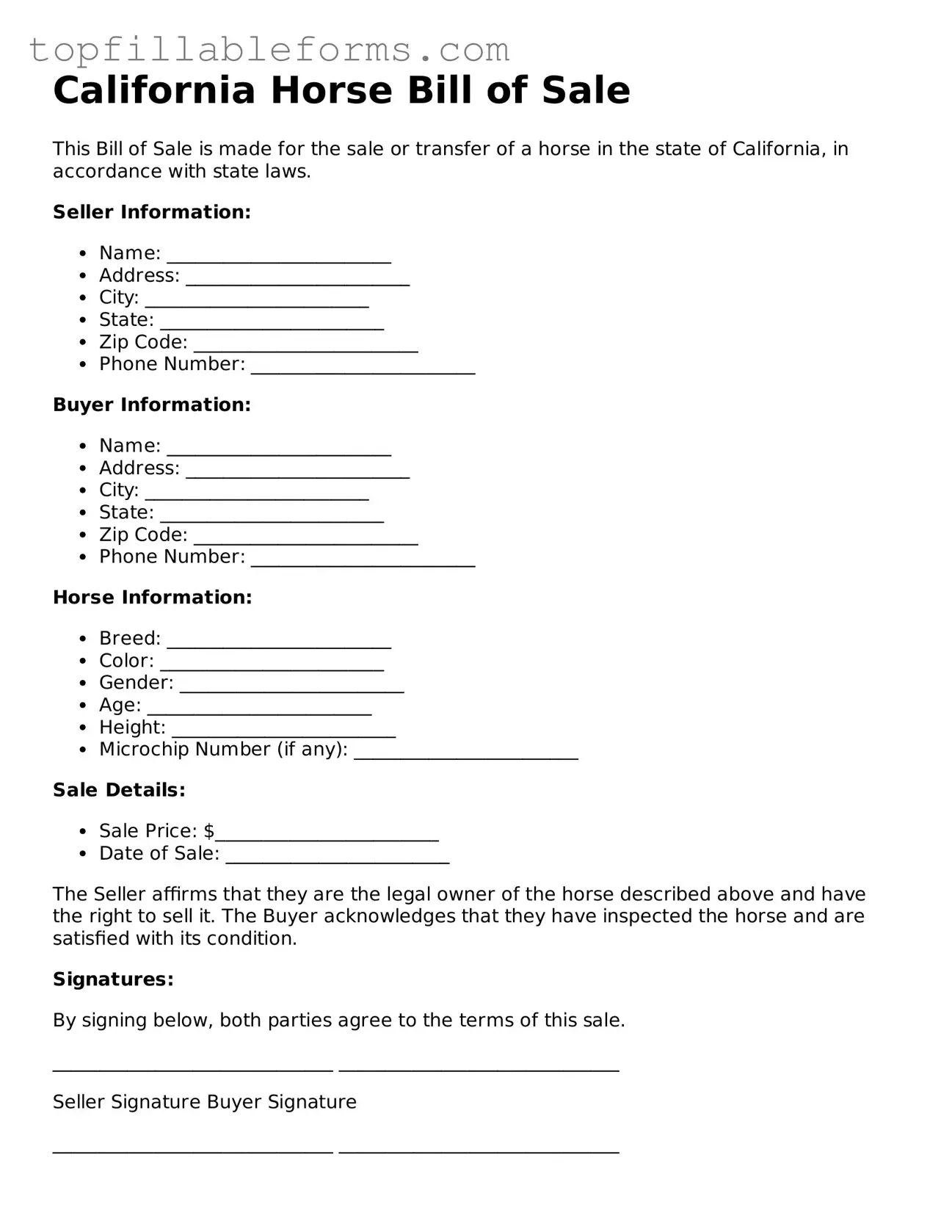Attorney-Verified Horse Bill of Sale Template for California
The California Horse Bill of Sale form is a legal document used to record the sale and transfer of ownership of a horse in California. This form provides essential details about the horse, including its identification and the terms of the sale. Understanding this document is crucial for both buyers and sellers to ensure a smooth transaction.
Open Horse Bill of Sale Editor Here

Attorney-Verified Horse Bill of Sale Template for California
Open Horse Bill of Sale Editor Here
Finish the form now and be done
Finish your Horse Bill of Sale online by editing, saving, and downloading fast.
Open Horse Bill of Sale Editor Here
or
▼ PDF File
